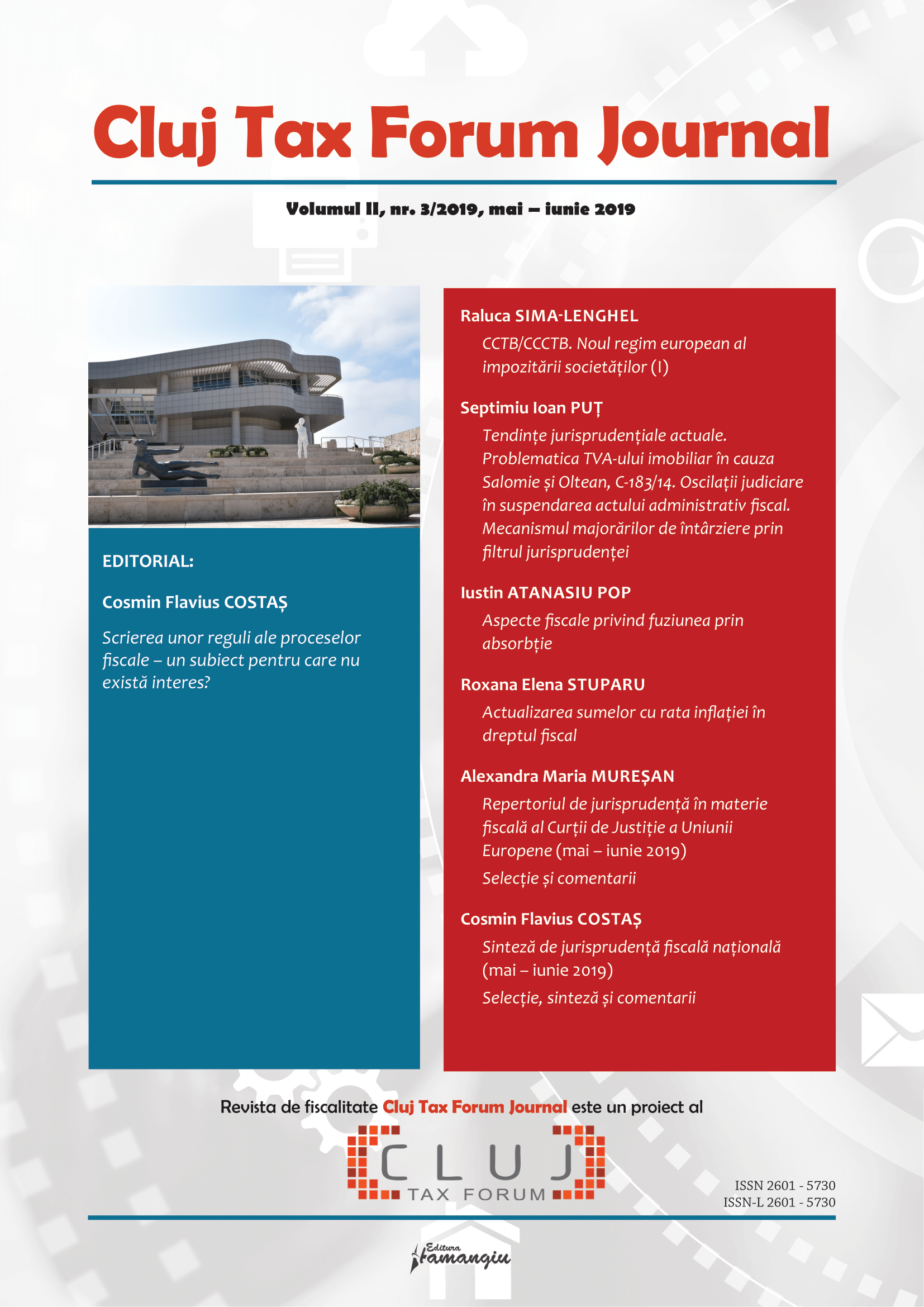CCTB/CCCTB Noul regim european al impozitării societăților (I)
CCTB/CCCTB. The New European Regime of Corporate Taxation (Part I)
Author(s): Raluca Sima-LenghelSubject(s): Law, Constitution, Jurisprudence, Law on Economics, EU-Legislation
Published by: Editura Hamangiu S.R.L.
Keywords: Common Consolidated Tax Base (CCTB); Common Corporate Consolidated Tax Base (CCCTB); fiscal harmonization; Member States’ fiscal sovereignty; soft law; enhanced cooperation mechanism; group of compani
Summary/Abstract: The fiscal harmonization issue has been, and it still is very controversial. On one side, the harmonization is necessary for facilitating the development of economic activity within the EU – objective that can be reached by the establishment of a single regulatory framework for company taxation. On the other hand, Member States are reluctant regarding fiscal harmonization, given that it undermines their sovereign right to handle legislation in the field of direct taxation. However, in the last years, the European Institutions have taken important steps to regulate the Common Consolidated Corporate Tax Base in the European Union (referred to as CC(C)TB). The latest proposals for the adoption of two directives regulating CC(C)TB, drafted by the European Commission in 2016, were voted by the European Parliament in 2018, and are currently in the hands of the Council, and provisions are made that they will come into force on the 1st of January 2020. Through this article, we present the main regulations contained in the two proposed directives to identify the advantages and disadvantages of the application of the CC(C)TB system and the consequences it would have on the EU Member States and the taxpayers. The first part of the article is dedicated to the introduction, to the presentation of the context that led to the drafting of the two directives and to the history of the approaches taken by the European Institutions for the purpose of harmonizing national legislation in the field of taxation. Also, in this first part, we present the peculiarities that define the two proposals of directives, the arguments that justified their adoption and the scope of the directives.
Journal: Cluj Tax Forum
- Issue Year: II/2019
- Issue No: 3
- Page Range: 5-19
- Page Count: 15
- Language: Romanian
- Content File-PDF

